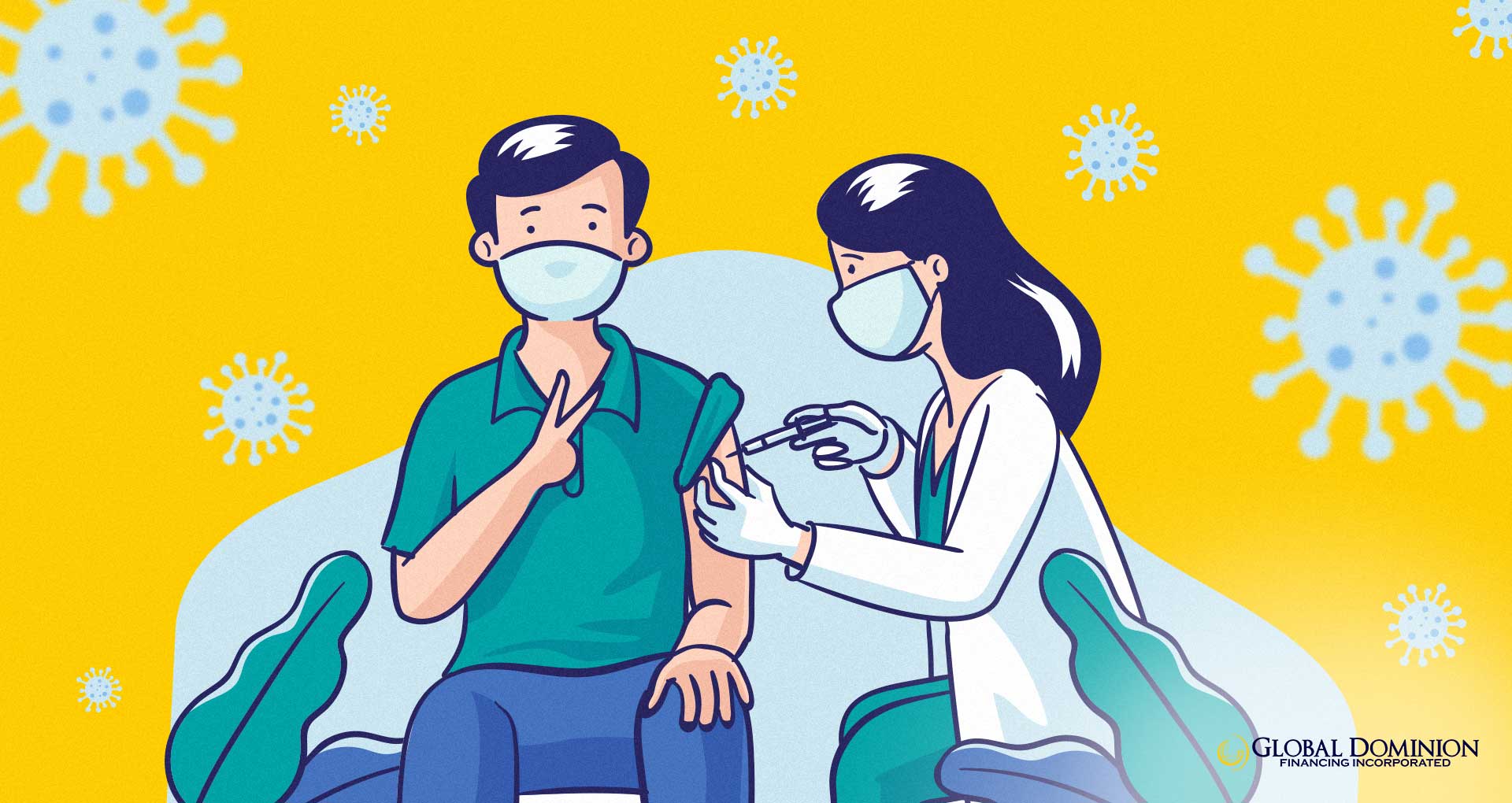COVID-19 Vaccines: Types, Brands, Pros and Cons

Every nation in the world rushes to build herd immunity from the coronavirus disease. In the Philippines, evident are the efforts for this to happen by giving vaccination to Filipinos. Let us take a brief look on the types of vaccines, available brands, and their pros and cons in general.
Types of Vaccines
Learn what kinds of vaccines the scientists have produced:
1. mRNA vaccine
A messenger ribonucleic acid (mRNA) is a single-stranded molecule that sends our immune system a message (thus called messenger) about foreign bodies such as the virus. It also signals instructions on how to eliminate these viruses, causing our body to generate antibodies. As soon as the instructions are delivered, the mRNA immediately gets broken down, leaving the antibodies to do their job. It never reaches our cells, so it doesn’t interact with our DNA.
For the understanding of many on how mRNA works, these molecules are compared to social media messaging feature. They send messages (what the virus looks like and instructions to destroy it) and disappear afterwards.
2. Vector vaccine
Vector vaccine uses a genetic material called adenovirus – a harmless virus (unable to replicate and cause sickness) that works as a delivery system. It also signals the immune system of foreign material invasion and triggers instructions to fight them, which results in the creation of defensive white blood cells and antibodies. This genetic material doesn’t also interact with our DNA.
3. Protein subunit vaccine
Subunit vaccines only use certain components of a virus or disease-causing bacteria. The components are known as the antigens which are safer than whole-pathogen vaccine approach. The antigens stimulate our immune system when there are harmful bodies. They send instructions to create antibodies and white blood cells to fight the virus like any vaccine. To improve the efficacy of the vaccine, adjuvants get incorporated to these antigens.
Available COVID-19 Vaccine Brands
These are the world brands of the coronavirus vaccine available at present:
1. Pfizer-BioNTech
Known as: BNT162b2
Manufacturing company: Pfizer, Inc., and BioNTech
Vaccine type: mRNA
Shots: Two (2) shots and should be 21 days apart
Injection area: Upper arm muscle
For travel overseas: Accepted in Saudi, Qatar, Kuwait, Canada, Europe
2. AstraZeneca
Known as: AZD1222
Manufacturing company: AstraZeneca
Vaccine type: Viral vector
Shots: Two (2) shots and should be 8 to 12 days apart
Injection area: Upper arm muscle
For travel overseas: Accepted in Saudi, Qatar, Kuwait, Canada, Europe
3. Moderna
Known as: mRNA-1273
Manufacturing company: ModernaTX, Inc
Vaccine type: mRNA
Shots: Two (2) shots and should be 28 days apart
Injection area: Upper arm muscle
For travel overseas: Accepted in Saudi, Qatar, Kuwait, Canada, Europe
4. Johnson & Johnson’s Janssen
Known as: JNJ-78436735
Manufacturing company: Janssen Pharmaceuticals Companies of Johnson & Johnson
Vaccine type: Viral vector
Shots: One (1) shots and should be 28 days apart
Injection area: Upper arm muscle
For travel overseas: Accepted in Saudi, Qatar, Kuwait, Canada, Europe
5. Sinopharm
Known as: BIBP
Manufacturing company: China National Biotec Group Co.
Vaccine type: Protein subunit
Shots: Two (2) doses and 2 to 4 weeks apart
Injection area: Upper arm muscle
For travel overseas: Accepted in Qatar (conditional) and Europe
6. Sinovac
Known as: Sinovac-CoronaVac
Manufacturing company: Sinovac Biotech Ltd.
Vaccine type: Protein subunit
Shots: Two (2) doses and 2 to 4 weeks apart
Injection area: Upper arm muscle
For Filipinos going overseas: Accepted in Europe
7. Bharat Biotech
Known as: COVAXIN
Manufacturing company: Bharat Biotech, Indian Council of Medical Research (ICMR) – National Institute of Virology (NIV)
Vaccine type: Protein subunit
Shots: Two (2) doses and 28 weeks apart
Injection area: Upper arm muscle
8. CanSino
Known as: CanSino
Manufacturing company: CanSino Biologics Inc.
Vaccine type: Viral vector
Shots: 1 dose
Injection area: Upper arm muscle
9. Gamaleya
Known as: Sputnik V or Gam-Covid-Vac
Manufacturing company: Gamaleya Research Institute
Vaccine type: Viral vector
Shots: Two (2) dose for Sputnik V and one (1) dose to Sputnik Light
Injection area: Upper arm muscle
10. Vector Institute
Known as: EpiVacCorona
Manufacturing company: Vektor State Research Center of Virology and Biotechnology
Vaccine type: Protein subunit
Shots: Two (2) doses and 28 weeks apart
Injection area: Upper arm muscle
Pros of COVID-19 Vaccines
Take note of the benefits of getting vaccinated:
1. Vaccines protect you from severe diseases and/or death due to COVID-19
It builds you immunity from getting the dreaded coronavirus disease that can cause health complications and, worse, death.
2. Vaccination enables you protect your family, friends, and community from the coronavirus disease.
By getting vaccinated, you also help in reducing the transmission of the virus. In the larger picture, you contribute in the world’s goal of flattening the curve. You can influence other people to do the same, and so they can also protect themselves from any health hazards.
3. The vaccines may also give you protection from COVID-19 variants
Coronavirus mutation happens, and these vaccines can still protect you from these health threats. The vaccines are good to have as shields against more dangerous and transmissible variants of the virus.
4. Vaccines may be required for travel
The severity of COVID-19 cases around the country and the world differ. Some are restrictive with entering their borders, while others are more lenient as long as the vaccine requirement. So, getting vaccinated also allows you to move more freely for work, personal needs, or leisure.
5. Getting vaccinated helps in enhancing the efficacy of vaccines
With more people using the vaccines, there will be more data that can be gathered and analyzed for scientists to improve the current vaccines.
Cons of COVID-19 Vaccines
Vaccines have side effects that include:
1. Discomfort and low-grade fever
The vaccines incur various side effects. Discomfort at the site of injection can occur. There are also cases of slight fever, headache, tiredness, and other ailment that go away in a few days.
Medical practitioners know that allergy tests, health status, and underlying conditions of the patient must be identified first before undergoing vaccination. This is to avoid administration that may lead to health risks.
Overall, vaccines help us move forward in our lives with less fear of getting infected with the virus. Get yourself vaccinated now, hoping to end the pandemic moving forward.





